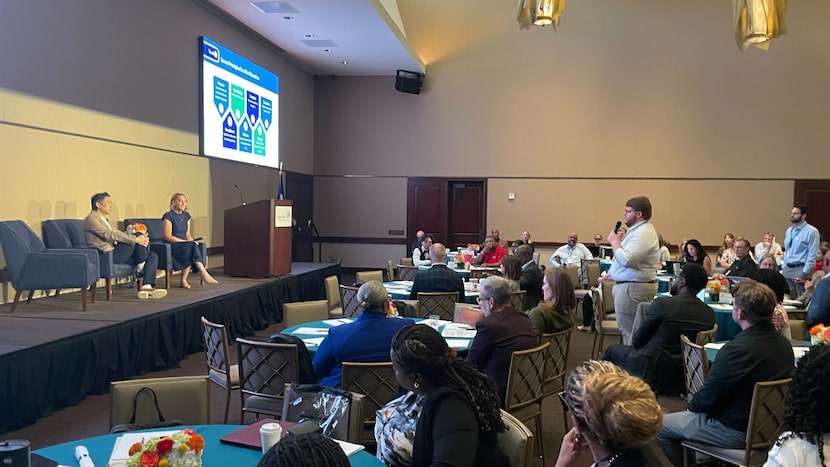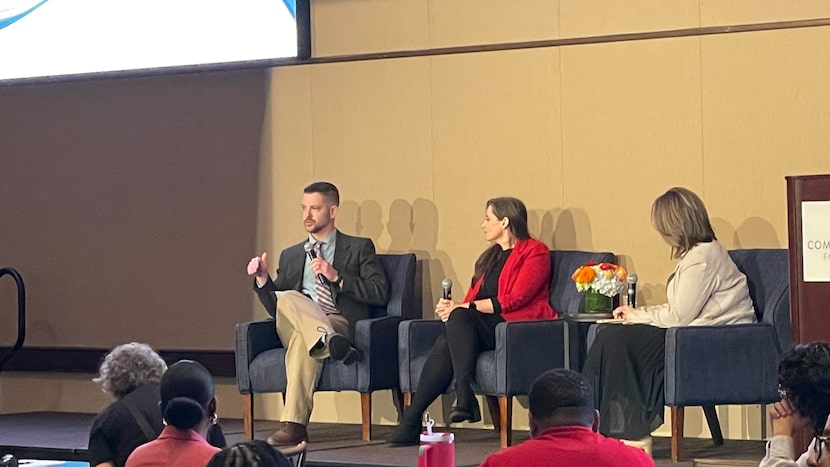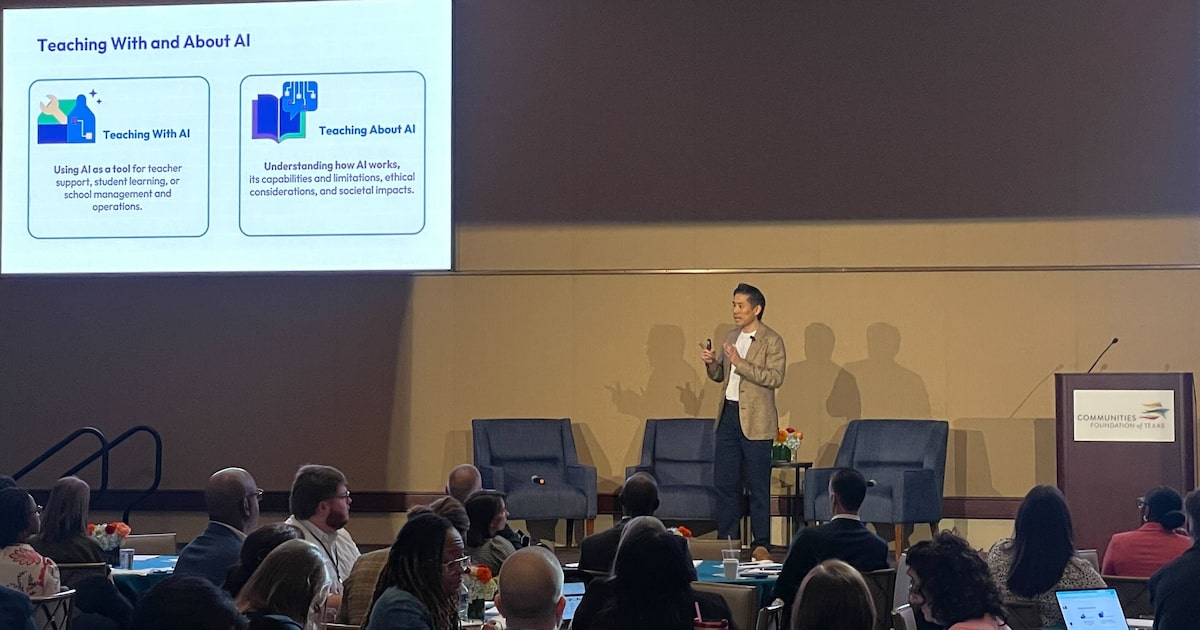Kids today already use or have access to artificial intelligence tools. That’s according to Pat Yongpradit, chief academic officer for Code.org, a nonprofit promoting computer science education.
What matters is teaching children how to use AI properly, Yongpradit said.
And he is worried schools are falling behind in this regard. In some schools, there’s likely a teacher using AI appropriately, while another teacher has banned AI altogether.
Related

The Education Lab
“It’s a Wild West in your ISDs,” Yongpradit said. “It’s a Wild West in individual schools.”
To address this, Educate Texas, an initiative of the Communities Foundation of Texas, has launched an AI + Education Leadership Collaborative. (The Communities Foundation of Texas is a supporter of the Future of North Texas Initiative at The Dallas Morning News).
The AI collaborative is designed for districts to understand how to integrate AI into their operations, said Kerri Briggs, executive director of Educate Texas.
Each district will choose how to use AI in its school systems in partnership with global nonprofits such as Digital Promise or Playlab, which are dedicated to improving AI use in education, Briggs said.
Dozens of representatives from school districts, charter schools, nonprofits, Dallas College and the Texas Education Agency convened recently for the first session at the Communities Foundation of Texas headquarters.
Future sessions, including one scheduled for Dec. 2, will focus on AI’s impact on workforce and college and career readiness, among other themes.
Understanding AI’s impact on education matters, because a recent survey of 2,232 public school teachers nationwide found 6 in 10 teachers reported using an AI tool for their work, according to a Walton Family Foundation and Gallup study.
In Europe, a multi-country survey found that 74% of students ages 12 to 17 believe AI will play a significant role in their professional lives, but less than half of those kids think their schools are prepared, Yongpradit said.

Christopher Gearing (right), a legislative aide for Texas Sen. Royce West, D-Dallas, speaks with Pat Yongpradit (far left), chief academic officer for Code.org, a nonprofit promoting computer science education, during an AI in education event at the Communities Foundation of Texas headquarters on Tuesday, Sept. 30, 2025.
Wilborn P. Nobles III/Dallas Mor / Wilborn P. Nobles III/Dallas Mor
The Texas Legislature this summer passed House Bill 149 to establish regulations around the use of AI. Sen. Royce West, D-Dallas, who cosponsored the bill, told The News education “was absent” from HB 149 to give school districts an opportunity to decide how to prepare students for AI.
Yongpradit also leads TeachAI, a national coalition of organizations advocating for safe and ethical AI use in schools. He told attendees AI should be used purposefully in schools to build AI literacy and academic integrity.
The Texas Education Agency could create an AI education task force to help create guidance for responsible AI use in education, Yongpradit said. He also stressed regular assessments of AI use in schools, to understand the pros and cons of AI use, and to ensure humans lead the process of using AI.
“Some kids use the chatbot and they’re actually learning during the chatbot use,” Yongpradit said. “Other kids … just ask [the chatbot] to do something for me and then copy [and] paste.”
Dr. Cherron Montgomery, executive director of teaching and learning at Cedar Hill ISD, said the school district is experimenting with AI tools to help students in their secondary math program.
Although she’s excited about their pilot program, she also wants school parents to understand how AI is being used.
“We need to do a better job as a community of educators to align and make sure we support our parents with the learning as well,” she said.

Ross Garrison (left), director of digital learning for Denton ISD, speaks during an AI in education event at the Communities Foundation of Texas headquarters on Tuesday, Sept. 30, 2025.
Wilborn P. Nobles III/Dallas Mor / Wilborn P. Nobles III/Dallas Mor
Ross Garrison, director of digital learning for Denton ISD, said the district focuses on AI use for staff members, such as a tool to help principals facilitate teacher appraisals.
Student use of AI is not implemented in Denton, he said, due to varying opinions on the ethics and benefits of students using AI.
School districts should create safe spaces for educators to experiment with AI, said Amanda Bickerstaff, CEO of AI for Education, an organization dedicated to the responsible adoption of AI in education.
But she also said people should be cautious of the consequences of AI use as well.
“The hard work is not in the AI literacy work, it’s going to be the work that comes after it,” she said, “and you start to see what really needs to shift and change to really prepare young people for the future that is here.”
This reporting is part of the Future of North Texas, a community-funded journalism initiative supported by the Commit Partnership, Communities Foundation of Texas, The Dallas Foundation, the Dallas Mavericks, the Dallas Regional Chamber, Deedie Rose, Lisa and Charles Siegel, the McCune-Losinger Family Fund, The Meadows Foundation, the Perot Foundation, the United Way of Metropolitan Dallas and the University of Texas at Dallas. The News retains full editorial control of this coverage.

